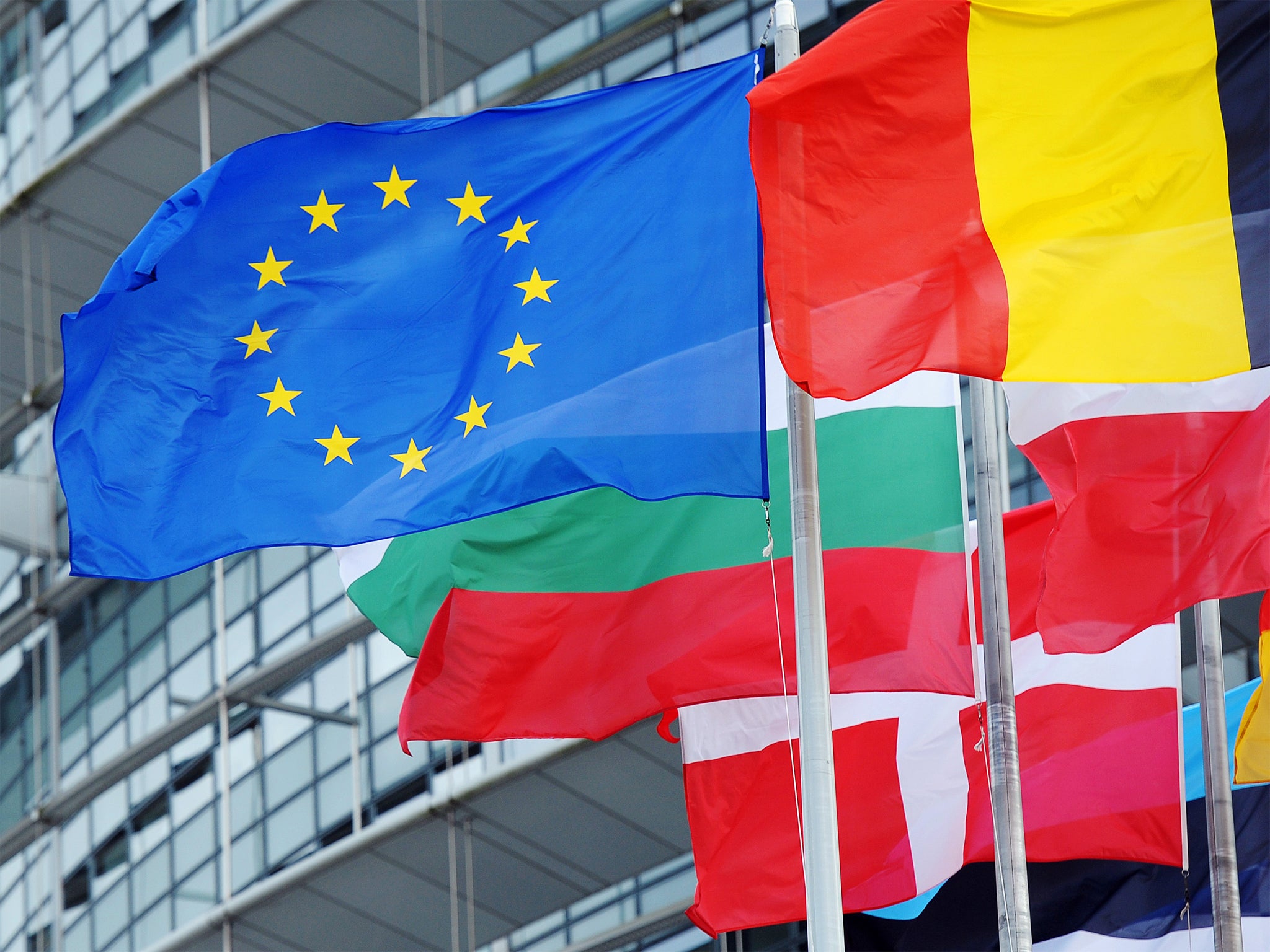Exclusive: Fall in number of Britons working in EU posts worries Foreign Office
Since 2010 not a single British civil servant has successfully applied for a full-time job in Brussels

Your support helps us to tell the story
From reproductive rights to climate change to Big Tech, The Independent is on the ground when the story is developing. Whether it's investigating the financials of Elon Musk's pro-Trump PAC or producing our latest documentary, 'The A Word', which shines a light on the American women fighting for reproductive rights, we know how important it is to parse out the facts from the messaging.
At such a critical moment in US history, we need reporters on the ground. Your donation allows us to keep sending journalists to speak to both sides of the story.
The Independent is trusted by Americans across the entire political spectrum. And unlike many other quality news outlets, we choose not to lock Americans out of our reporting and analysis with paywalls. We believe quality journalism should be available to everyone, paid for by those who can afford it.
Your support makes all the difference.Britain’s influence in Europe is suffering because of falling numbers of British diplomats being hired to work in Brussels – a trend which could prove impossible to fully reverse, the Government has conceded.
In a stark admission the Foreign Office said the problem had now become “acute” and was “set to get worse”. Since 2010 not a single British civil servant has successfully applied for a full-time job in Brussels.
As a result, the number of UK nationals on the staff of the European Commission has fallen by almost a quarter in the last seven years.
The UK now supplies just 4.6 per cent of Commission staff, compared to its 12.5 per cent share of the EU’s population. In comparison, France has 13 per cent of the EU population and holds 9.7 per cent of Commission posts.
The picture is similar in the European Parliament, which has become increasingly powerful. The UK’s share of administrator-grade staff has fallen from 6.2 per cent to 5.8 per cent since 2010, while France’s has risen from 7.5 per cent to 8.6 per cent.
In its formal response to the House of Commons Foreign Affairs Committee, which first raised the problem, the Foreign Office admitted that it needed to do much more to address the issue. It said it was unable to “parachute new staff into senior positions within the EU institutions” – i.e. the Commission, the Parliament and the General Secretariat of the EU Council – and success had to come through open recruitment.
However, British candidates have proved remarkably unsuccessful at getting through the rigorous testing process. Of all the British civil servants in the European Fast Stream, not a single candidate has completed the process and got a full-time job working for a European institution since 2010.
The Foreign Office said the “computer-based testing” required for success at what is known as the “concours” had been particularly challenging. “Member states cannot parachute new staff into senior positions within the EU institutions – the only way to increase the number of permanent UK staff is through success at the concours. There have been 30 European Fast Stream opportunities to take the concours since the programme restarted in 2010. From these opportunities, no candidate has completed the process and taken up a post.”
The Foreign Office said that under-representation was not a new phenomenon. “The UK (has) never met its ‘share’ of EU staff,” it wrote. “However the problem has become more acute, and is set to get worse before it gets better. It is difficult to envisage, given current trends and the lack of regular generalist concours, a situation in which the UK’s share of EU staff matches its proportion of the population.”
In its report, published in the summer, the Commons Foreign Affairs Committee said there was a “generation gap” with senior UK officials in Europe retiring and not being replaced in the same numbers. They said the language requirements – applicants need to demonstrate a “good level” of French and German to be considered – were one of a number of obstacles to increasing British presence in the EU’s apparatus.
While the competition was understandably tough, the MPs said potential applicants often had a “lack of awareness” about what a career in the EU entailed and what was required.
A Foreign Office spokesman said it had already established a “Success in the EU” project to help UK civil servants apply more successfully for EU positions.
“We are proud that, as a result of these efforts, more Brits applied for the EU entrance exam in 2012 than ever before. More work needs to be done, however, to translate this increase in applications into more permanent posts and reverse the UK’s EU staffing deficit,” the spokesman said.
Join our commenting forum
Join thought-provoking conversations, follow other Independent readers and see their replies
Comments